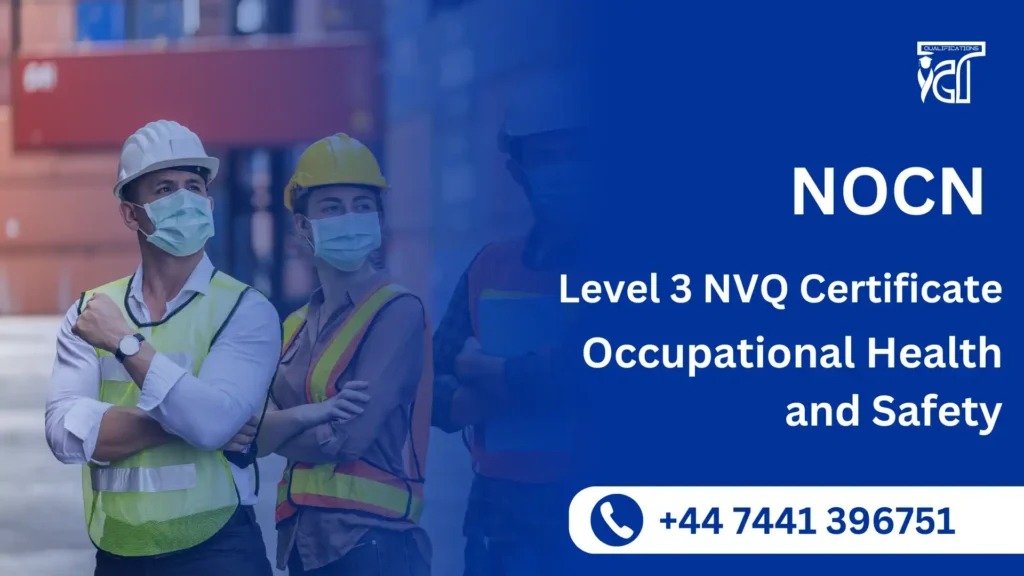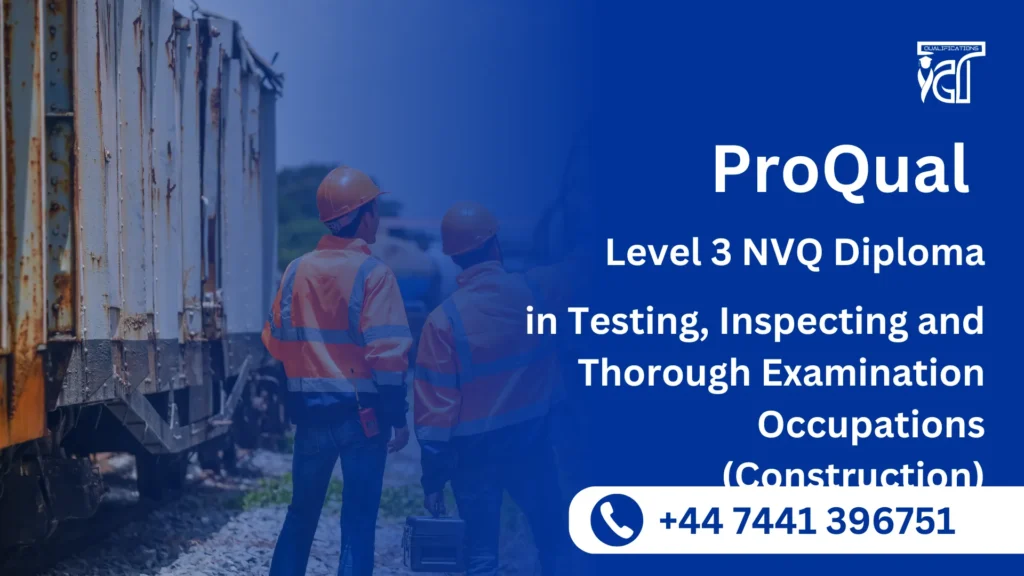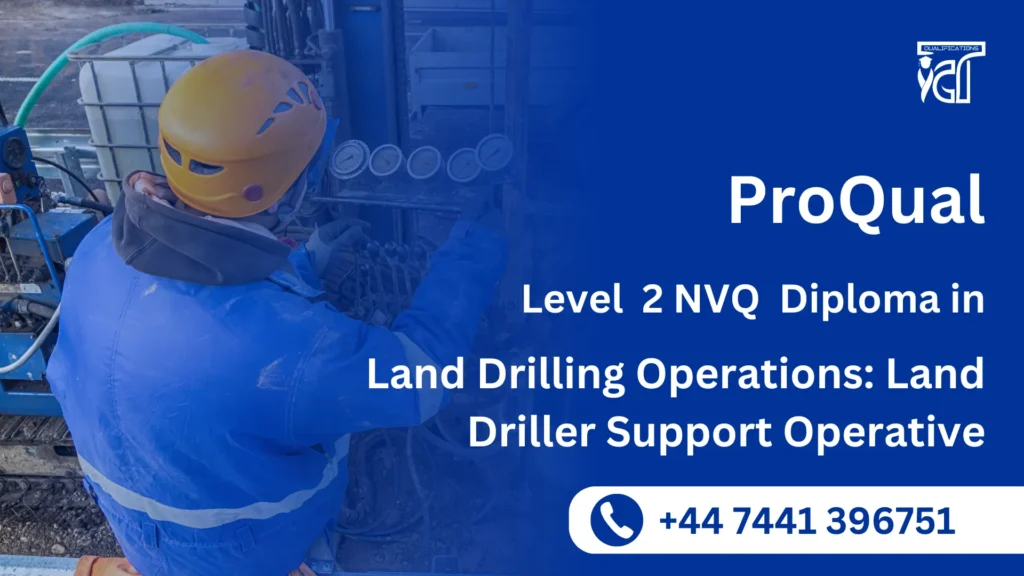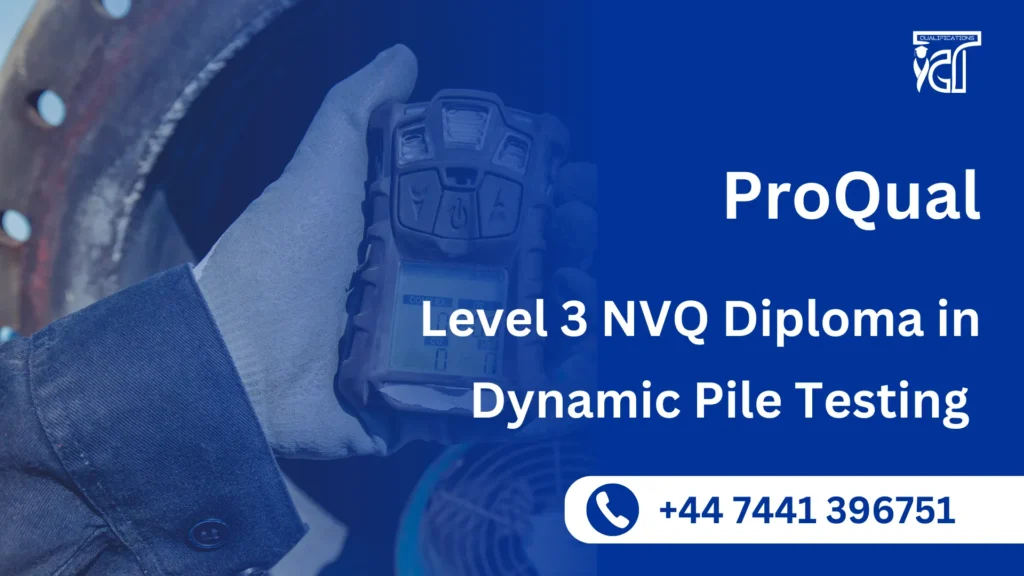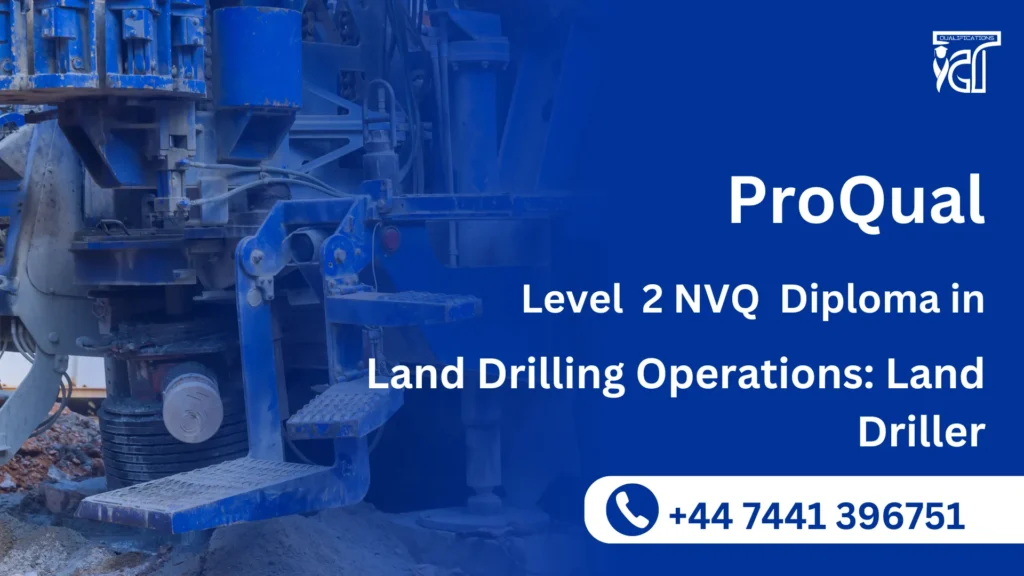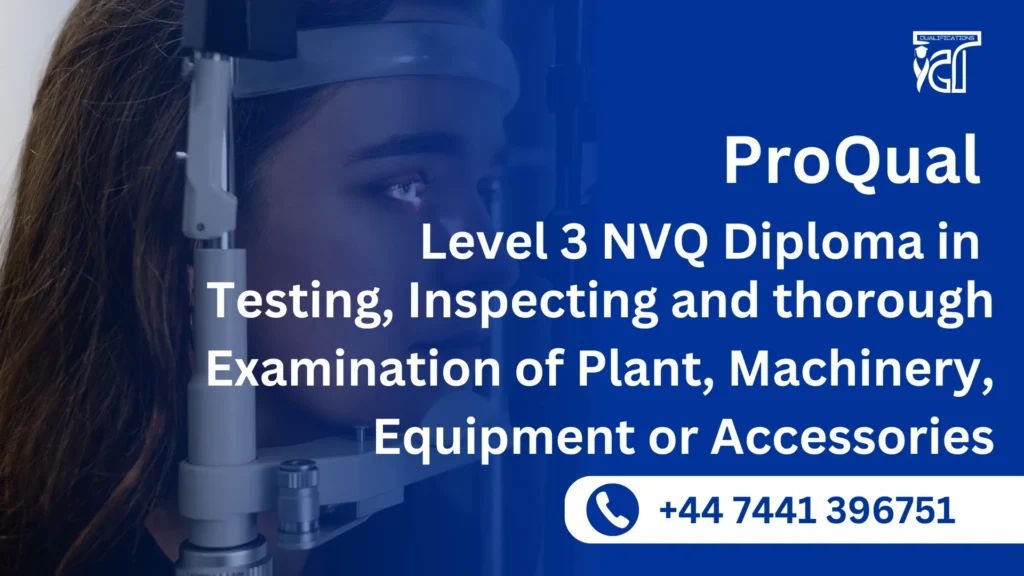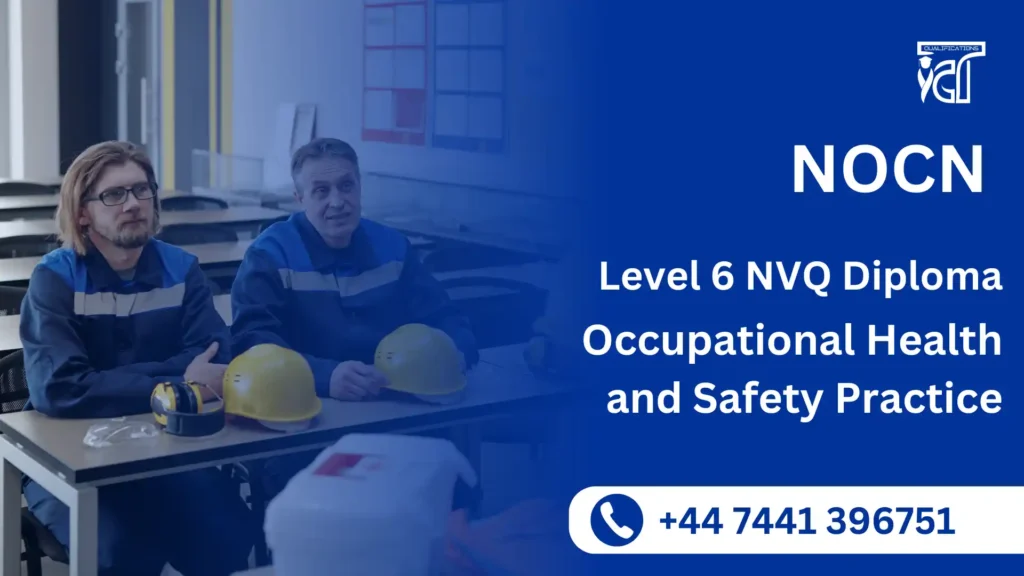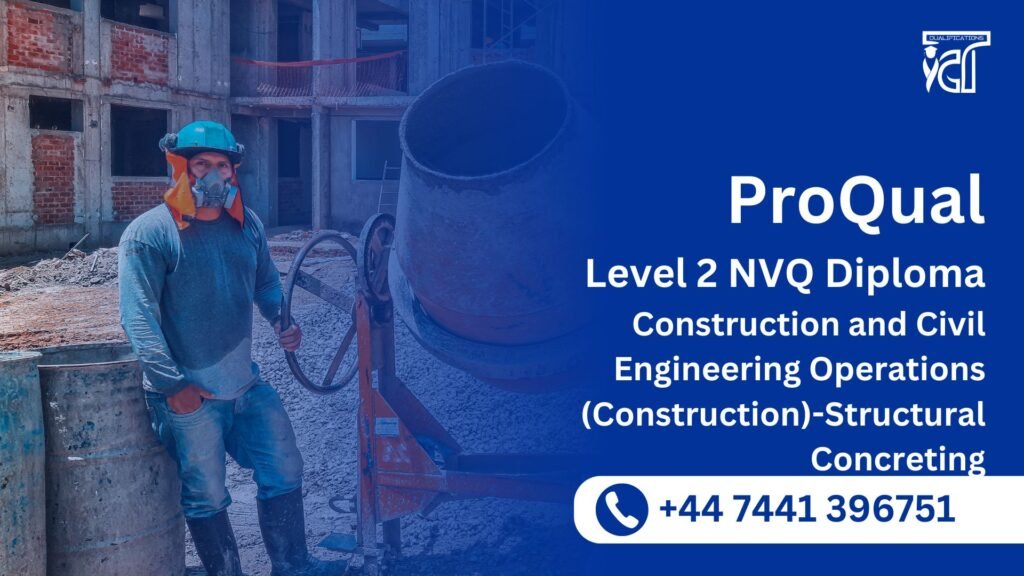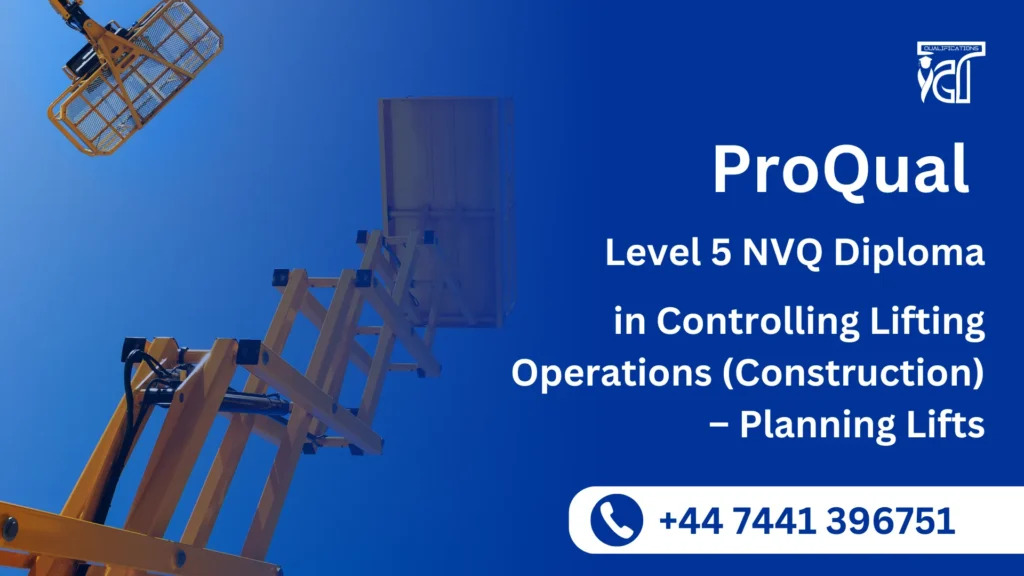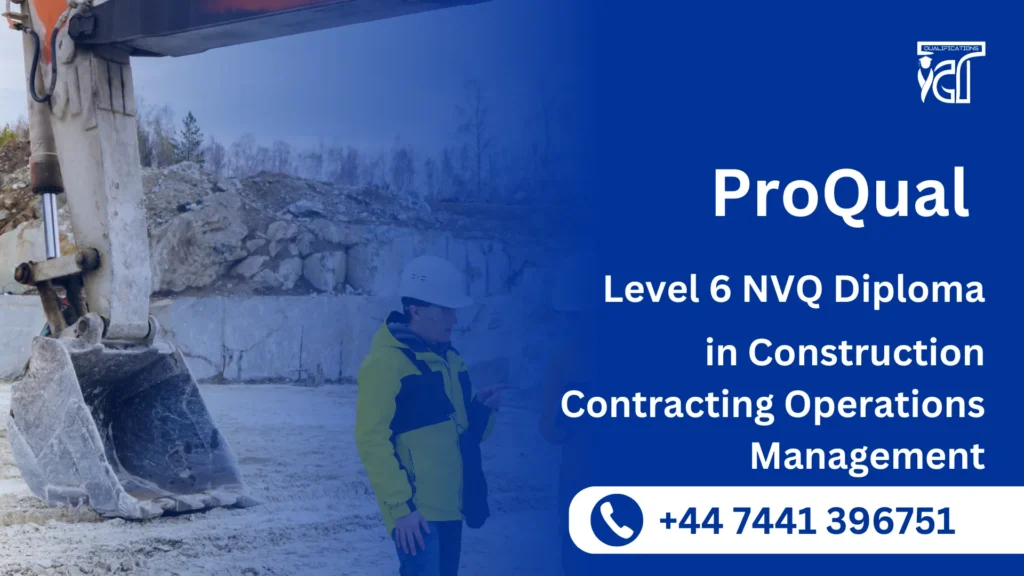What Are NVQ Qualifications? A Complete Guide for UK Learners
In today’s competitive job market, practical skills and real-world experience are more valuable than ever. National Vocational Qualifications (NVQs) are work-based awards that are designed to help individuals demonstrate their competence in a specific role or industry. Widely recognised across the UK, NVQs provide a flexible and practical route to career progression and professional development.
This guide is designed for students exploring post-school options, jobseekers looking to enhance their employability, and employers seeking to upskill their workforce. Whether you’re starting out in your career, changing direction, or looking to support staff training, understanding NVQs can open the door to a wide range of opportunities.
why are NVQs important?
Unlike traditional academic qualifications, NVQs focus on practical, hands-on skills that are directly relevant to specific job roles and industries. They are competency-based, meaning learners are assessed on what they can do rather than what they know. This makes NVQs particularly valuable for sectors such as construction, health and social care, hospitality, and engineering—where on-the-job performance is critical.
By aligning education with workplace needs, NVQs not only support individual career development but also help businesses maintain high standards of service and productivity. In short, they bridge the gap between learning and doing—making them a vital part of the UK’s vocational education landscape.
An NVQ (National Vocational Qualification) is a work-based qualification that assesses a person’s ability to carry out tasks and responsibilities in a specific job role to a nationally recognised standard. NVQs are based on practical, real-world performance rather than written exams, and they are designed to demonstrate that a learner is competent in their chosen profession.
Learners are assessed in the workplace or a realistic working environment, and progress through the qualification by proving their skills through a portfolio of evidence, observation, and professional discussions with assessors. NVQs are available in a wide range of industries and at multiple levels, from entry-level positions to senior management roles.
History and Development in the UK
NVQs were introduced in the late 1980s as part of a government initiative to reform vocational education and provide a standardised framework for workplace skills. The aim was to create an alternative route to academic qualifications that recognised the value of practical experience and hands-on learning.
Managed under the Regulated Qualifications Framework (RQF) and overseen by awarding bodies such as City & Guilds, ProQual, and NOCN, NVQs have evolved to meet the changing needs of employers, learners, and industry standards. While the term “NVQ” is less commonly used today in official frameworks, the structure and principles of NVQs continue to underpin many modern vocational qualifications and apprenticeship standards across the UK.
How NVQs Differ from Academic Qualifications
The key difference between NVQs and academic qualifications lies in their focus and method of assessment:
| NVQs | Academic Qualifications |
|---|---|
| Competency-based and practical | Knowledge-based and theoretical |
| Assessed through workplace tasks | Assessed through exams and coursework |
| Flexible, no fixed start dates | Often structured around academic years |
| Tailored to specific job roles | Broader subject areas |
| Learn by doing | Learn by studying |
NVQs are ideal for individuals who prefer hands-on learning and want to gain recognition for their skills on the job. Academic qualifications, on the other hand, are more suited for those pursuing further education in universities or engaging in research-driven fields.
By focusing on competence and performance in real work environments, NVQs help bridge the gap between education and employment—providing learners with the skills employers actually need.
How NVQ Qualifications Work
Structure: Units, Modules, and Assessments
NVQ qualifications are made up of a combination of mandatory and optional units that reflect the core skills required for a particular job role or sector. Each unit focuses on a specific task or area of responsibility within the occupation, and learners must complete enough units to meet the credit requirement of the qualification.
There are no written exams. Instead, learners are assessed on their ability to perform tasks competently in a real or simulated work environment. Evidence is collected in a portfolio, which may include:
- Work samples or records
- Observations by an assessor
- Witness testimonies
- Professional discussions
- Reflective accounts
- Video or photographic evidence
This flexible structure allows learners to progress at their own pace and tailor their learning to their job role and career goals.
Competency-Based Learning
NVQs are fundamentally competency-based, which means they assess what a person can do in practice rather than what they know in theory. To achieve an NVQ, a learner must consistently demonstrate that they can carry out their job to the standard expected by their industry.
This approach benefits learners who thrive in practical settings and want their real-world skills to be formally recognised. It also ensures that employers get staff who are fully capable of performing their roles to industry standards.
On-the-Job vs. Classroom-Based Learning
One of the main advantages of NVQs is their flexibility. They are typically completed on the job, allowing learners to earn while they learn and apply new skills in real-time.
In some cases, especially in training centres or apprenticeships, classroom sessions may be used to support workplace learning—offering tutorials, workshops, or simulated environments where practical skills can be developed and assessed safely.
This blend of learning environments ensures that individuals gain both theoretical understanding and hands-on experience, making NVQs highly adaptable to different learning styles and workplace needs.
Role of an Assessor
A key figure in the NVQ process is the assessor. The assessor is a qualified professional who works closely with the learner to:
- Observe their performance in the workplace
- Review their portfolio of evidence
- Provide constructive feedback
- Ensure standards are met
- Guide them through the qualification process
Assessors ensure that all competencies are met consistently and to the required standard before awarding units. They also play a mentoring role, helping learners stay on track and make the most of their learning journey.
NVQ Levels Explained
NVQ qualifications are structured across seven levels, each reflecting the complexity, responsibility, and skill required in a particular job role. These levels help both learners and employers understand the depth of knowledge and competence expected at each stage.
Below is a breakdown of NVQ Levels 1 to 7, their academic equivalents, and examples of typical roles or industries associated with each level.
NVQ Level 1: Foundation Level
- Equivalent to: GCSEs (grades D–G or 1–3)
- Focus: Basic knowledge and routine tasks under direct supervision
- Ideal for: New entrants to the workforce or those developing fundamental work skills
Example Roles:
- Warehouse Assistant
- Kitchen Porter
- Construction Labourer
- Salon Assistant
NVQ Level 2: Intermediate Level
- Equivalent to: GCSEs (grades A*–C or 4–9)
- Focus: Competence in a range of tasks with some autonomy and responsibility
- Ideal for: Employees who are developing core job-specific skills
Example Roles:
- Healthcare Assistant
- Hairdresser
- Junior Administrator
- Bricklayer
NVQ Level 3: Advanced Level
- Equivalent to: A-Levels
- Focus: Skilled work requiring technical knowledge, problem-solving, and supervisory potential
- Ideal for: Experienced workers, supervisors, or those progressing to more senior positions
Example Roles:
- Senior Care Worker
- Electrician
- Beauty Therapist
- Construction Site Supervisor
NVQ Levels 4–5: Higher Education Level
- Equivalent to: Foundation degree, HNC/HND
- Focus: Complex technical or professional tasks, leadership, and management responsibilities
- Ideal for: Team leaders, technical specialists, or those pursuing higher managerial roles
Example Roles:
- Assistant Manager
- Construction Project Supervisor
- Health and Safety Officer
- Early Years Senior Practitioner
NVQ Level 6: Bachelor’s Degree Level
- Equivalent to: Bachelor’s degree (e.g., BA/BSc)
- Focus: High-level professional practice, strategy, and leadership
- Ideal for: Senior professionals and managers
Example Roles:
- Operations Manager
- Senior Construction Manager
- Registered Manager in Health and Social Care
NVQ Level 7: Master’s Degree Level
- Equivalent to: Master’s degree (e.g., MA/MSc)
- Focus: Strategic leadership, innovation, and high-level decision making
- Ideal for: Executives, directors, and highly experienced professionals
Example Roles:
- Director of Care Services
- Strategic Operations Leader
- Senior Consultant or Advisor
Understanding these NVQ levels can help individuals choose the qualification that matches their current skill level and future career aspirations. They also provide employers with a reliable benchmark for assessing staff competency and supporting workforce development.
Who Should Take an NVQ?
National Vocational Qualifications (NVQs) are designed to suit a wide range of learners and working professionals at different stages of their career. Whether you’re just starting out or looking to gain recognition for your existing skills, NVQs offer a practical, flexible pathway to career development.
Here’s a look at who can benefit most from pursuing an NVQ:
School Leavers
For students leaving school who prefer hands-on learning over traditional academic study, NVQs offer a great alternative. These qualifications can be a first step into the world of work, allowing young people to:
- Learn while working or through apprenticeships
- Gain industry-recognised credentials
- Build confidence and employability skills
- Progress to higher-level qualifications or full-time employment
Common NVQ choices for school leavers include hairdressing, hospitality, construction, and healthcare support roles.
Adult Learners
NVQs are ideal for adult learners who want to return to education without the constraints of exams or full-time study. They are especially beneficial for those who:
- Need to upskill in their current job
- Want to gain formal recognition for existing experience
- Require a career boost after a break from the workforce
Many adult learners take NVQs in fields like business administration, health and social care, or retail management, often with the support of their employer or government funding.
Career Switchers
If you’re looking to change careers, NVQs offer a practical route into a new industry. Because they focus on real-world skills, you can start building competence quickly while gaining a qualification that employers value.
Popular choices for career switchers include:
- Teaching assistant roles (Level 3 NVQ in Supporting Teaching and Learning)
- Plumbing, electrical work, or carpentry for trades
- Health and social care for those entering the care sector
Employers Wanting to Train Staff
NVQs are not only for individual learners—they’re a powerful tool for employers looking to develop their workforce. By supporting staff through NVQs, businesses can:
- Improve productivity and performance
- Retain skilled employees
- Meet industry or regulatory standards
- Upskill teams cost-effectively
Employers often use NVQs as part of apprenticeship programmes or internal development plans in sectors like hospitality, construction, logistics, and customer service. No matter your age, background, or career stage, NVQs provide a flexible, respected, and practical route to personal and professional growth.
NVQs and Career Progression
National Vocational Qualifications (NVQs) are more than just workplace training — they’re a strategic stepping stone for anyone looking to advance their career, gain industry recognition, or progress into higher education. Whether you’re building your skills from the ground up or enhancing your leadership capabilities, NVQs can open doors across multiple sectors.
How NVQs Improve Employability
One of the biggest advantages of NVQs is their direct connection to real-world roles. Because they are competency-based and job-specific, completing an NVQ tells employers you are not only qualified but also proven to perform to industry standards.
Key employability benefits of NVQs include:
- Recognition by employers across the UK
- Increased confidence and job-readiness
- Formal validation of existing skills and experience
- Better chances of securing promotions or job offers
- Enhanced CVs that stand out in competitive sectors
From entry-level positions to senior roles, NVQs provide a clear, practical route to getting hired and advancing at work.
Pathways to Further Education or University
Contrary to common belief, NVQs don’t limit you to vocational roles — they can also act as a springboard into further education, including college, university, or even professional qualifications.
For example:
- An NVQ Level 3 is equivalent to A-Levels and can lead to a Foundation Degree or HND
- NVQ Levels 4–5 align with Higher National Certificates and Diplomas (HNC/HND)
- NVQ Level 6 can support entry into Bachelor’s degree programmes, especially in business, management, or healthcare
Many UK universities and colleges accept NVQs as part of their non-traditional entry routes, especially when supported by relevant work experience.
Apprenticeships and NVQs
NVQs are often integrated into apprenticeship frameworks in England, Wales, and Northern Ireland. If you’re on an apprenticeship, you’re likely working toward an NVQ as part of your overall qualification.
This blended model offers:
- Paid, hands-on work experience
- Classroom-based learning for supporting knowledge
- A structured path toward full certification
- Nationally recognised qualifications upon completion
Apprenticeships that include NVQs are available in sectors like engineering, construction, digital, hospitality, and health and social care.
Industry-Recognized Certifications
NVQs are awarded by respected bodies such as:
- ProQual
- NOCN
These organisations ensure that NVQs meet national occupational standards, which means the qualifications are trusted by employers and regulators alike. In many industries — particularly health and safety, construction (CSCS requirements), and care services (CQC compliance) — NVQs are either strongly preferred or mandatory for progression. Earning an NVQ can also pave the way toward membership in professional bodies or additional certifications relevant to your field.
In summary, NVQs offer far more than just skills training. They support lifelong learning, career mobility, and access to further education—making them an essential part of career development in today’s evolving workforce.
FAQs About NVQ Qualifications
If you’re considering an NVQ but still have questions, you’re not alone. Here are some of the most frequently asked questions about NVQ qualifications — and clear answers to help you make an informed decision.
How long does it take to complete an NVQ?
The time it takes to complete an NVQ depends on the level of the qualification, the learner’s pace, and whether it’s done full-time or part-time.
- Level 1–2 NVQs can typically be completed in 3 to 6 months
- Level 3 NVQs often take 6 to 12 months
- Higher-level NVQs (Level 4–7) may take up to 18 months or more
Since NVQs are flexible and portfolio-based, learners often progress at their own speed, depending on how quickly they can demonstrate competence in their role.
Are NVQs still recognized in the UK?
Yes — NVQs are still widely recognised and respected across the UK, particularly in sectors like health and social care, construction, hospitality, and engineering. While the term “NVQ” has been phased out in some regions (especially in England), the qualifications themselves still exist under different names or frameworks such as:
- RQF qualifications (Regulated Qualifications Framework)
- SVQs in Scotland (Scottish Vocational Qualifications)
Despite rebranding, the core principles of NVQs — practical, work-based, competency-focused learning — remain very much in use.
Can I study NVQs online?
Yes — many NVQs can now be studied online or via blended learning, especially at Levels 1–3. Online NVQs typically combine:
- Digital learning materials
- Video calls or remote assessments
- Online portfolio submission platforms
However, because NVQs assess your real workplace performance, you’ll still need access to a relevant job role or work placement to gather evidence and complete practical assessments.
What happens if I fail an NVQ unit?
If you don’t meet the standard for a particular NVQ unit, you won’t “fail” the entire qualification. Instead, you’ll be given feedback and the opportunity to resubmit evidence or be reassessed.
Your assessor will work with you to:
- Identify areas for improvement
- Guide you in collecting stronger evidence
- Support you in demonstrating the required competencies
This supportive approach makes NVQs more learner-friendly than traditional exam-based courses — you can improve and continue until you meet the standard.
National Vocational Qualifications (NVQs) offer a powerful and practical route for individuals looking to gain recognised credentials, enhance their skills, or progress in their careers. Whether you’re a school leaver exploring alternatives to university, an adult returning to education, or an employer looking to upskill your team, NVQs provide a flexible, hands-on, and respected approach to learning.
What sets NVQs apart is their real-world relevance. They don’t just measure what you know — they measure what you can do, making them incredibly valuable in today’s skills-focused job market. With options across a wide range of industries and levels, NVQs can open the door to employment, promotion, or further education.
If you’re ready to take the next step, now is the perfect time to explore NVQ pathways that align with your goals. Whether it’s in construction, healthcare, business, or any number of skilled trades or services, there’s an NVQ designed to help you get there.


